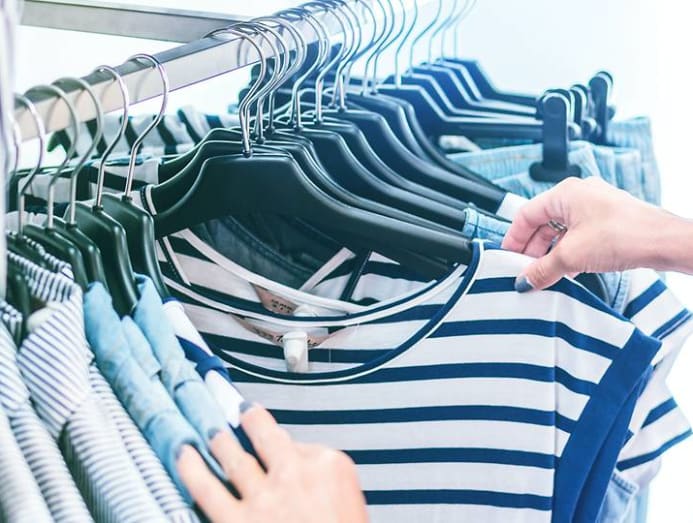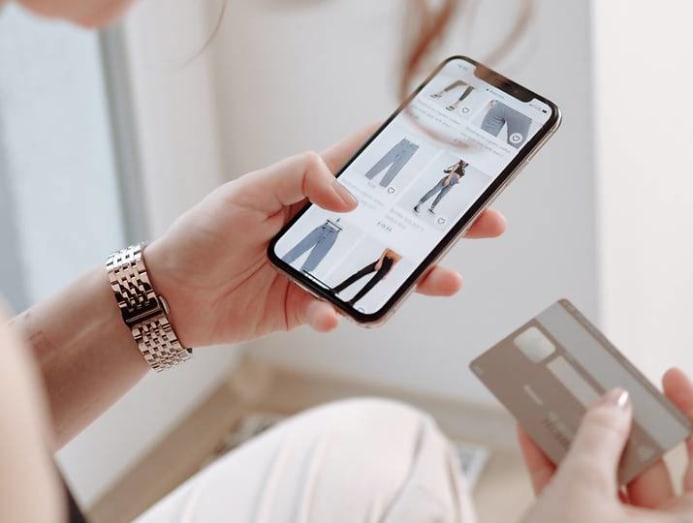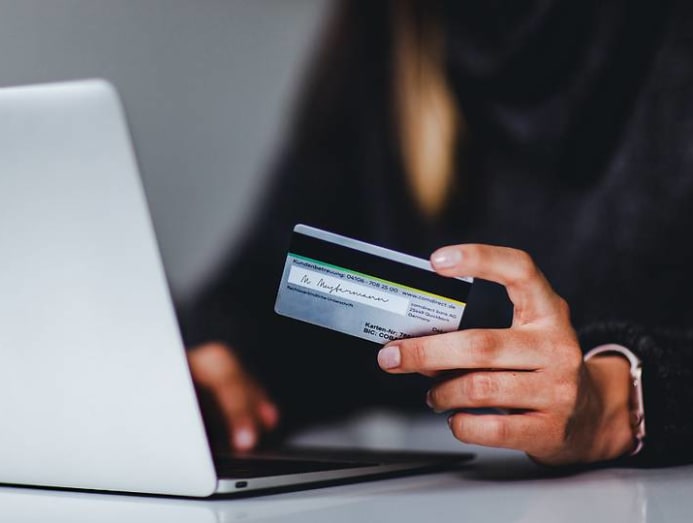Impulse buying: Why some people can't stop shopping and how not to overspend
There’s no harm in a little splurge every now and then but can you spot the warning signs? CNA Lifestyle asks the experts and offers tips on how to be a wiser shopper. In partnership with UOB.

Are you addicted to shopping? (Photo: Pexels/Gustavo Fring)
Raise your hands if any of these suspiciously sound like the internal monologues you have when you’re out shopping.
“The pink lipstick is less orange than the other 20 pink lippies I have at home.”
“I work so hard, I totally deserve this (thing that I never even knew existed until five minutes ago.”
“I just need to find one more S$5 cropped tee to qualify for the S$200 free delivery – even though there is nothing else I need or want. I will be saving so much money on shipping!”
If you find yourself nodding in agreement, it might be time to take a little step back before you whip out your wallet or click “buy”.
Rationalisations like these are a warning sign that you could be starting to overspend, which in turn might lead to a strain on your personal financial goals if left unchecked.
READ: Ladies, here’s how to manage personal finances at different stages of your life

“An impulse towards overbuying is a form of medicating ourselves to escape our busy minds,” explained Dr Perpetua Neo, a psychologist and leadership coach.
“Most commonly, it’s the drive to escape whatever distress one is going through, like a level of background stress like overwork, burn-out and poor sleep, which in Singapore may not quite count as ‘stress’ or even ‘distress’. Buying is a momentary salve for our heads, and that adrenaline rush feels oh-so-wonderful.”
An impulse towards overbuying is a form of medicating ourselves to escape our busy minds.
But over time, this coping behaviour has the potential to escalate.
“Quite often, small-ticket overshopping can be the metaphorical gateway drug towards bigger items, because you learn to become more comfortable with spending and with a bigger total amount,” added Dr Neo.
So, with time, it’s not impossible for that S$2 Daiso spree to escalate to Gucci sneakers and Chanel handbags to get that hit of exhilaration as you walk out of the shop with a shiny new purchase in hand.
E-commerce and shopping apps add to the temptation since you really do not have to try very hard to spend your moolah.
“Online shopping allows for immediate gratification because we do not need to leave our home but it also means the cycle of gratification is shorter and as a result we feel the need to buy again soon,” said Andrea Kennedy, a finance behaviour specialist and founder of Wiser Wealth.

To grab consumers’ attention, many e-tailers also offer up a slew of promotions that can feel hard to resist.
“Deals and coupons make you spend money but are framed to prime your mind to believe you’re saving money. In a time when we are told to be more prudent or austere, the idea that we’re saving whilst spending can make us feel darned good about ourselves,” said Dr Neo.
And when you receive an alert for online flash deals with countdown timers or notices that only a few items are left in stock, be aware that these can trigger a sense of urgency.
“In Singapore where we are already hardwired with kiasu and kiasi mentalities, these are a Molotov cocktail that may implode in your face and bank balance,” she added.
Deals and coupons make you spend money but are framed to prime your mind to believe you’re saving money.
To get a sense of how dependent you are on shopping for the feel good vibes, take note of how you feel after that initial dopamine rush fades away.
Sue Anne Han, principal consultant psychologist at Adelphi Psych Medicine Clinic, said: “While shopping can offer a brief boost of positive emotion, such behaviors are often then quickly followed by shame, guilt and regret. And to manage the feelings of shame and disappointment, they get into another reinforcing cycle to cope with the feelings – so you feel good, then you feel bad, and then you spend more to feel good again.”
Those feelings of guilt may even cause some individuals to lie about how much they spend on shopping and buying or resort to great lengths to conceal their purchases from their family and friends.
“We often refer – quite frivolously – to this emotional spending as ‘retail therapy’. The name is misleading, as it implies the act will improve mental health – the opposite is far more likely,” said Han. If an individual feels that the situation is spiralling out of control, it is important, she said, to seek therapy to help manage the deeper emotions that may be at the root of such behaviour and learn healthy coping tools.
In the worst case scenario, some people may even go into debt or experience financial problems caused by excessive shopping. “It is dangerous when your spending is completely out of whack with your income or asset base and you lose the ability to save or go into debt for consumption,” said Kennedy.
We often refer – quite frivolously – to this emotional spending as ‘retail therapy’. The name is misleading, as it implies the act will improve mental health – the opposite is far more likely.
Of course, there is nothing wrong with appreciating the finer things in life. As Dr Neo said, “If you are an adult in control of your money, by all means, spend away.”
“Shopping is an activity that everyone engages in, so to some extent, it can be difficult to tell when shopping has crossed the line. Many people love to shop and even spend more than they should, but these traits don't make them addicts,” explained Han.
Still, there’s no doubt every one of us loves the satisfaction of being a smart shopper. So, here are five hacks to help you steer clear of overspending so you can enjoy the pleasure of shopping sans the guilt.
PAUSE BEFORE YOU BUY

Take three deep breaths to do a “brain reset” before you ring up your purchases, recommended Dr Neo. Give yourself some time to logically evaluate if you need what is in your shopping cart – digital or otherwise. And most of all, do not shop when you feel stressed, anxious or down. She said, “What you buy when you are in a good place is very different from when you are in a bad or meh place.”
COMMIT TO A FINANCIAL PLAN

To genuinely change your spending habits, you will need to make a commitment, said Kennedy. For instance, “pay yourself” by transferring a fixed amount to a separate bank account every month before allocating what is left as your “spending money”.
While it may seem tough to have an austerity budget, remember that this is not permanent as your financial habits and bandwidth will change with time, advised Dr Neo. And here’s something to look forward to: “Allow yourself some rewards from time to time so you won’t have bouts of explosive overspending,” she said.
KEEP AN EYE ON CREDIT CARD USAGE

“Have a separate debit card with only a fixed amount of money in the debit card for spending so you can’t impulse buy. Or get rid of multiple credit cards,” said Han.
Kennedy agreed, saying there may be perks from consolidating your spending on one type of card. “If the card gives you points and allows you to buy what would otherwise be a big ticket item such as flights for free, strategically using a card this way can pay off,” she said.
For example, every quarter, the UOB Lady’s Card allows cardmembers to select up to two preferred spend categories such as fashion, travel, dining or transport from which they earn ten times the reward points. This allows the cardholder to maximise her points accumulation depending on how she spends her money.
HAVE AN ACCOUNTABILITY BUDDY

Shop only with friends or relatives who do not compulsively spend so that they can help you to curb your spending, said Han.
It is also worthwhile to spend time with a network of friends who prefer to focus on saving and investing, said Kennedy, so that their habits also rub off on you.
PICK UP OTHER HOBBIES

If shopping is becoming such a preoccupation that it is leading you to neglect other aspects of life, find ways to keep yourself busy. “Find alternative ways to enjoy your leisure time such as exercising, making social connections or learning something new,” said Han.
For more great ideas for you and your money, visit www.uob.com.sg/ladys.





